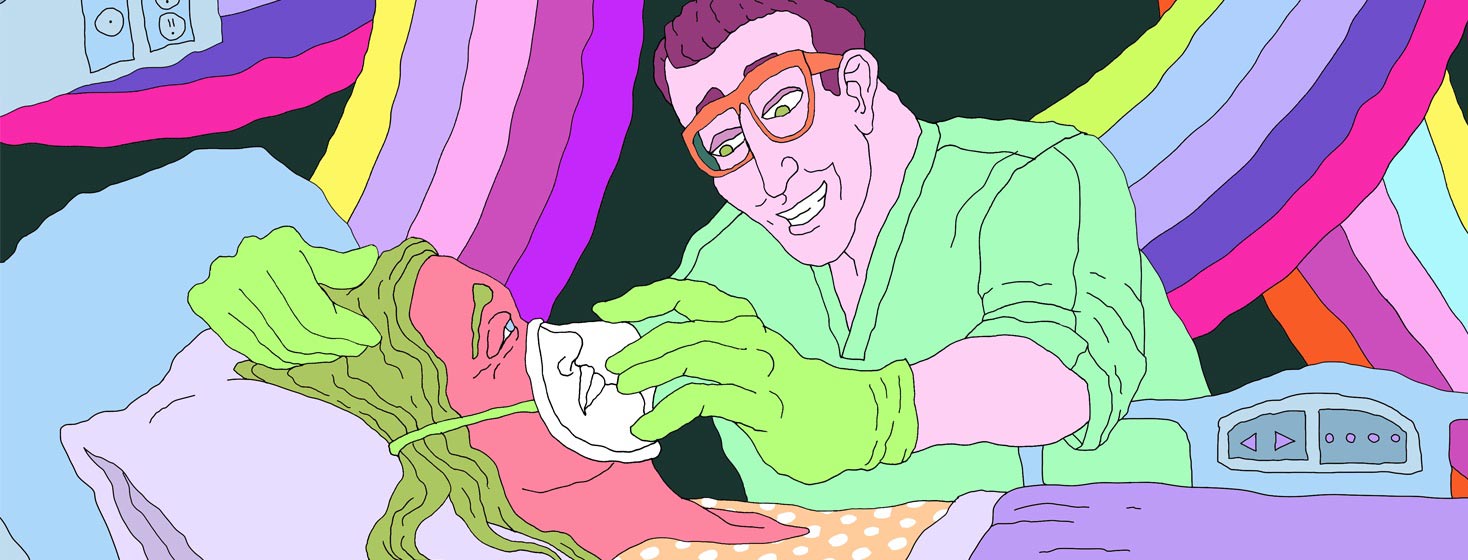Why Did I Become A Respiratory Therapist?
The question I'm often asked is, “Why did you become a respiratory therapist?” There's no simple answer, but the pivotal point that set me on this path was my childhood diagnosis of "high-risk" asthma.
A comforting presence
As a child, I spent considerable time in doctor’s offices, emergency rooms, and hospital beds. All of this was for severe, uncontrolled asthma.
Along this journey, I encountered various healthcare professionals, including respiratory therapists. Whenever I was admitted, a respiratory therapist would be there, giving breathing treatments that miraculously restored my breath.
However, what left a lasting impact was not just the medical intervention but the personal connection these therapists forged. Amid the sterile hospital environment, they became companions.
In those moments when I was alone for hours, their presence was a welcome break from the routine visits by nurses, lab technicians, and X-ray personnel.
One particular respiratory therapist stands out in my memory. She not only administered my breathing treatments but also spent time engaging with me.
We would talk and watch TV together, and she even brought in cards to play games. It was a simple act, but it made a significant difference in my hospital experience.
During one session, she asked me what game I'd like to play, and the only one that came to mind was “War.” So that's what we played.
Looking back, these interactions made a lasting impression on me. The compassionate care provided by respiratory therapists extended beyond the technical aspects of their job. They became a source of comfort and companionship during challenging times.
My professional goals
So when people ask me why I became a respiratory therapist, it's not just about a professional choice – it's about paying forward the kindness and support I received during my own battles with asthma. It's about being that comforting presence for someone else, just as those respiratory therapists were for me.
As the time approached for me to choose a career path, my dad suggested that becoming a respiratory therapist might be a perfect fit, given my history as an asthmatic. His reasoning was simple yet compelling – my firsthand experience with asthma would foster empathy for my future patients. Intrigued, I attended a career day and sought insights from a respiratory therapist.
Engaging in a conversation about my aspirations, I learned more about the profession and found it resonated with me. However, a lingering concern clouded my decision-making process: the dreaded question of whether I had to take chemistry.
The therapist's affirmative response dampened my enthusiasm. Chemistry had been my high school nemesis, and the thought of facing it again cast a shadow on my choice.
In the end, I opted for a different path and pursued a career in journalism. Despite not being the most outgoing person, I had a passion for writing.
Journalism school became the training ground where I honed my skills. While I never ventured into traditional journalism, it laid the foundation for what I'm doing now – blogging.
After earning my journalism degree, I realized that traditional journalism wasn't my calling. The constant need to pry into people's lives clashed with my laid-back and phlegmatic personality.
Four years into pursuing journalism and marketing degrees, I made a bold decision to switch schools and embrace a new journey as a respiratory therapist.
Working with COPD patients
Initially drawn to respiratory therapy with the hope of working closely with asthmatic children, my career path took an unexpected turn. As many of us discover, our initial visions and the reality of our professions can significantly diverge.
While I envisioned a career filled with interactions with people living with asthma, the landscape had shifted by the time I officially became a respiratory therapist.
During my childhood in the 80s, there was a surge in poorly controlled asthma cases, leading to frequent admissions. However, by the mid-90s, the asthma epidemic had waned.
Unbeknownst to me, experts had come together in the late 80s to educate local doctors through asthma guidelines. This concerted effort, coupled with advancements in asthma knowledge and medication, resulted in improved asthma control.
Most people with asthma were now equipped to manage their condition at home, reducing the need for hospital admissions. While occasional admissions still occurred, they were no longer as frequent.
This shift meant that the patients I found myself caring for as a respiratory therapist were predominantly those with chronic obstructive pulmonary disease (COPD). It was a pivot from my initial expectations, but it opened a new chapter in my professional journey.
The challenge and reward of caring for COPD patients became the focal point of my career, showcasing the dynamic nature of healthcare and the adaptability required in the ever-evolving field of respiratory therapy.
What about you? How have your experiences shaped unexpected turns in your COPD journey? Please share in the comments below.

Join the conversation